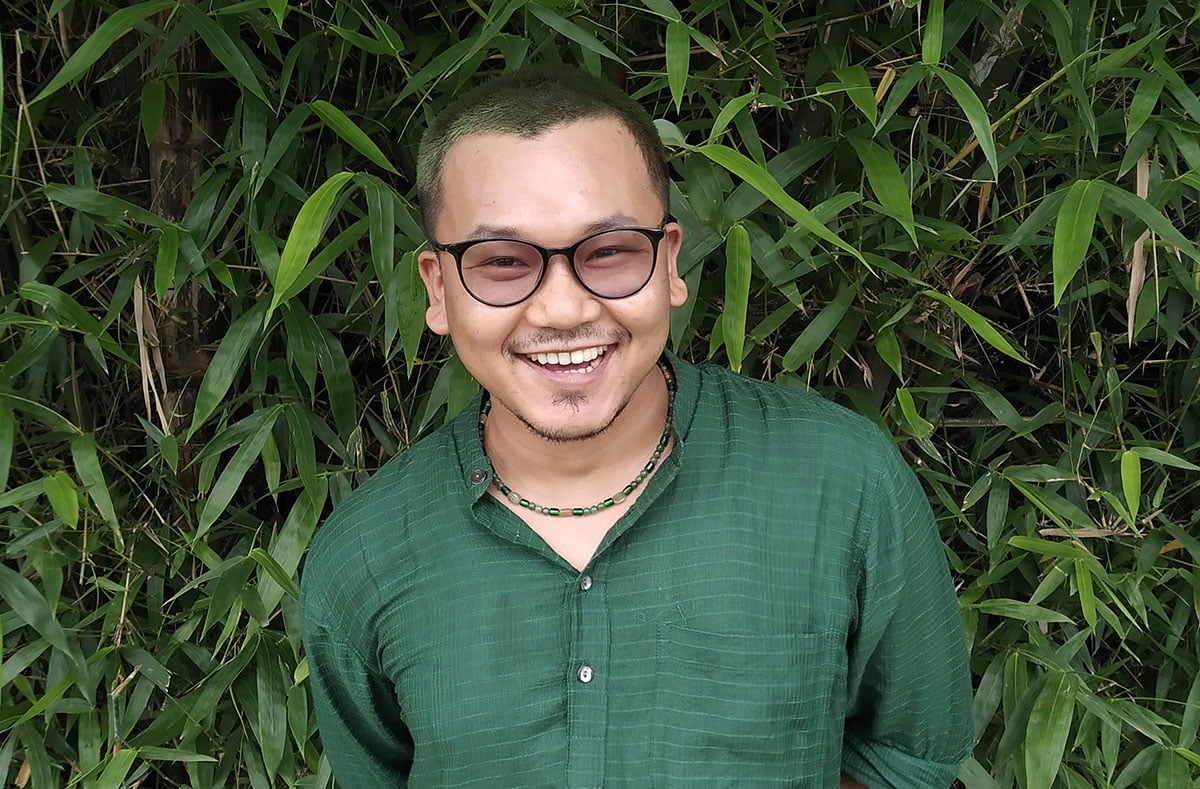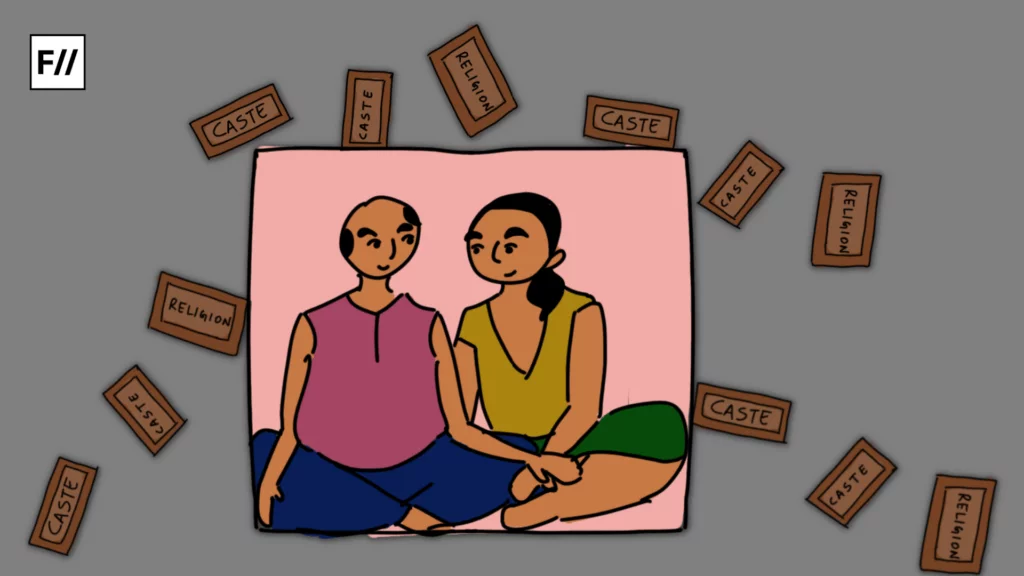Sony Thockchom is a visual artist from Imphal, Manipur, based out of New Delhi. His paintings combine elements of nature, fashion, and human emotions. They have been displayed at galleries and events in Delhi and Imphal.
I stammer when I talk and that makes me very anxious and conscious when people ask me to speak in public or in front of a camera. So, my real voice came through visuals to communicate with the world
Sony Thockchom
Thokchom grew up in Imphal, Manipur. He admits to being a shy child. Growing up, his love for painting often made him feel like an outsider to his more academic peers. But he cultivated his art and in 2008, convinced his parents to let him move to Delhi to pursue a Bachelors in fine arts from Jamia Millia Islamia University. This was followed by a postgraduate diploma in Animation and VFX from the Mass Communication Research Centre at Jamia as well.
He has also been part of the Woodstock International School’s artist residency in Mussoorie and has actively worked with the Art for Change Foundation.
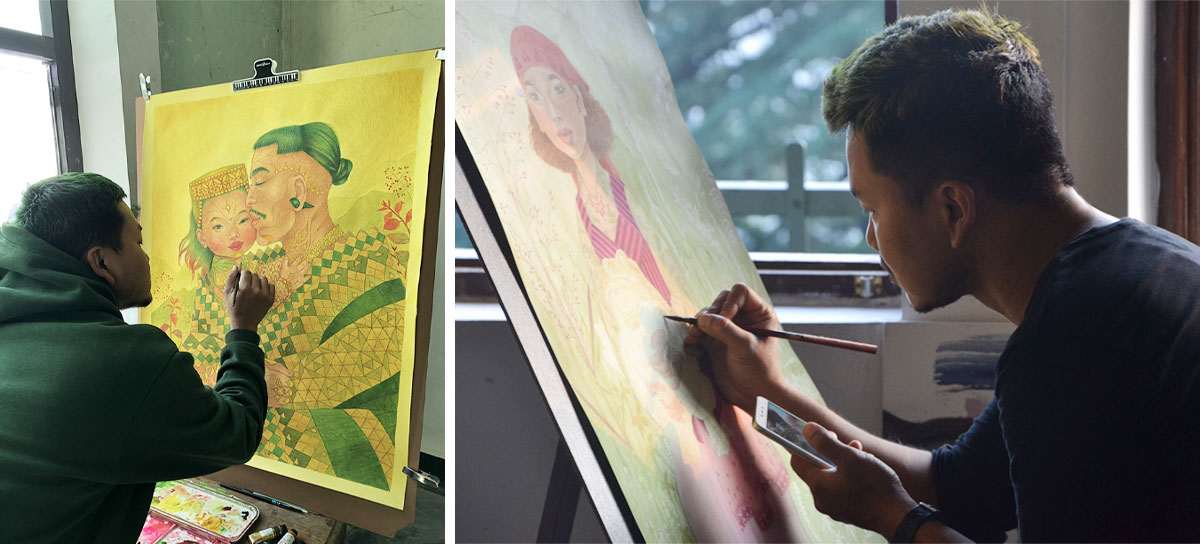
Art, campus and finding his voice
Within the campus, Thockchom found a place to develop his skill, but outside, he was met with the casual racism that parades the streets of New Delhi, and much of the mainland. In an interview, he recalls being addressed with a series of racial slurs.
I was called ‘momo’ or ‘chowmein’ by random strangers. It’s funny because we’re mainly rice eaters
Sony Thockchom
In hindsight, he believes that these negative experiences pushed him to make his art representative of cultural and racial diversities. He states, “I am no “artivist” but my artwork is a way for me to bridge the gap that we have due to our cultural and racial differences… The cultural imbalances I found around me got me to start fusing and mixing our cultural identities associated with clothes.”
It was through his art that Thockchom found his voice and space.
Also read: Book Excerpt: Centrepiece – New Writing And Art From Northeast India Edited By Parismita Singh
Magical realism and North-Eastern representation
Looking at Thokchom’s art feels a lot like watching a Miyazaki film. In it lingers a longing to retain a certain childlike curiosity. His characters, when they are depicted in nature, seem to be in synergy with it. Growing up in Imphal, Thockchom felt a deep connection to nature and has stated that it inspires a lot of his work. It is easy to get lost in his paintings, for a moment it feels as though all of life is happening on the canvas. But there is more to his art than the magical appeal.
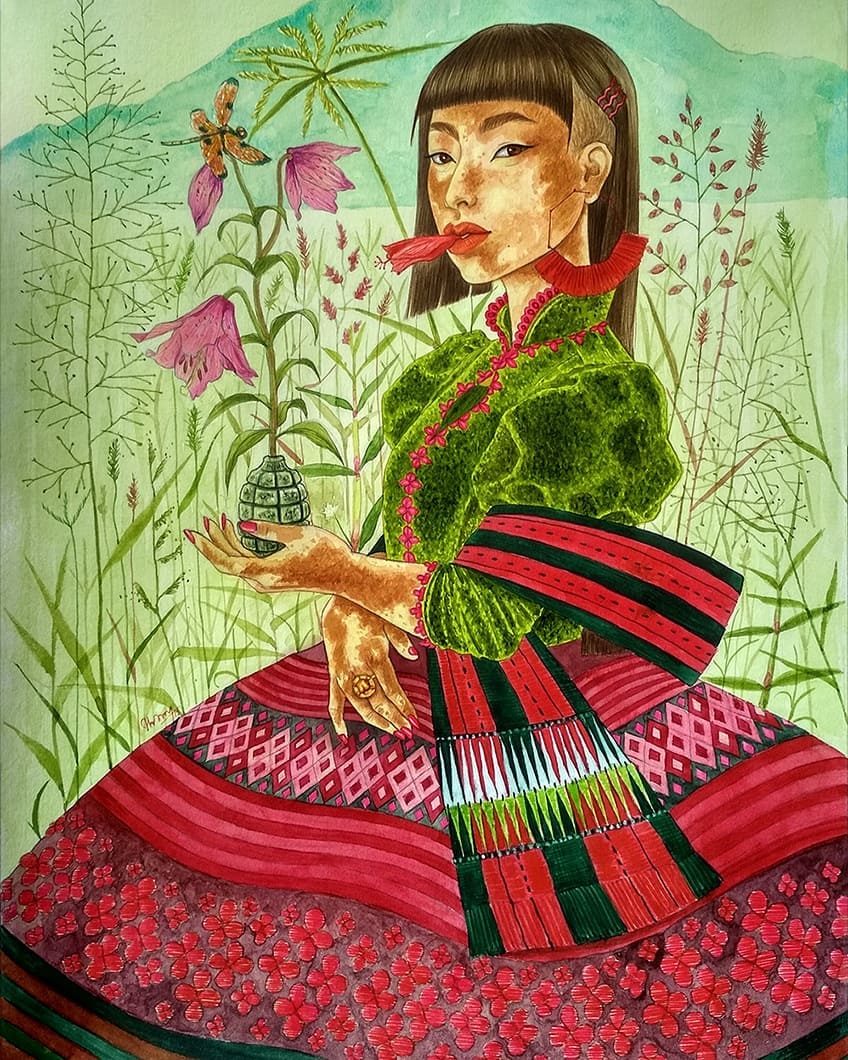
He ties seemingly opposing elements together effortlessly. Nothing about his work feels jarring or forced, showcasing the diverse North Eastern reality as it is – dynamic and moving. Narratives on the North-East have for too long been controlled by the mainland. These tend to depict North-Eastern societies as stagnant and unchanging. But Sony’s work shows how modern elements are fused with the traditional to create new realities every day
Thockchom juxtaposes the traditional with the modern. In a painting titled “Wedding of my BFF,” the characters are depicted taking selfies, donned in traditional Meitei wedding attire, along with more contemporary elements. Their demeanor is far removed from the reserved brides and bride-maids in old Manipuri wedding photographs.
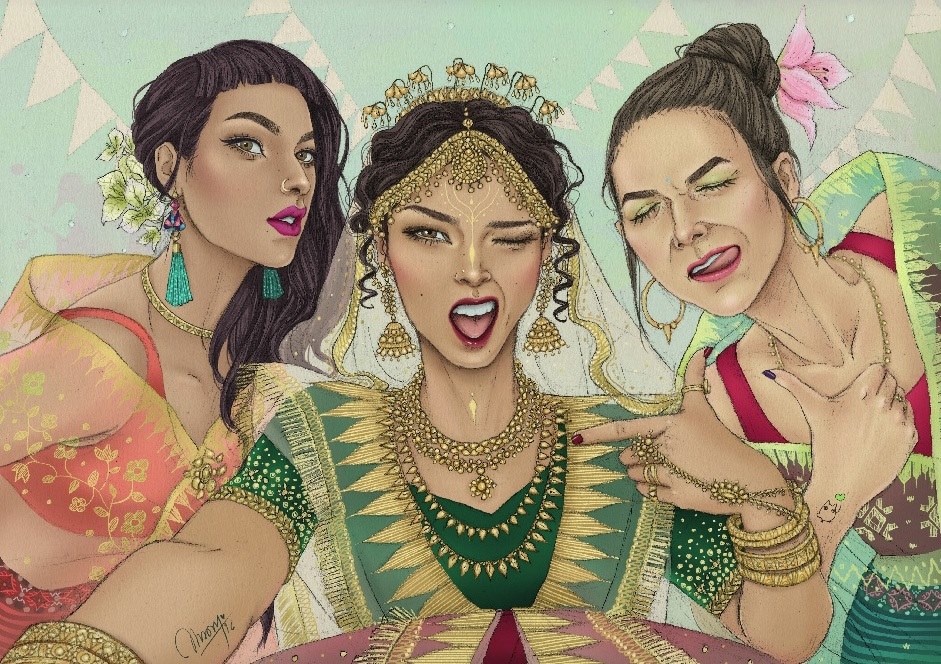
In another painting, inspired by the Apatani Tribe of Arunachal Pradesh, the subject is seen with the traditional Apatani face tattoos and nose plugs, as she sports a fresh buzzcut.

His painting “Tea Break” depicts two friends, relaxed as they sip on tea. Here too, both characters are drawn wearing the fabric of the ‘phanek’, the traditional Meitie wrap around sarong, but it is styled into a shorter, tighter fit skirt.

He ties seemingly opposing elements together effortlessly. Nothing about his work feels jarring or forced, showcasing the diverse North-Eastern reality as it is – dynamic and moving. Narratives on the North-East have for too long been controlled by the mainland. These tend to depict North-Eastern societies as stagnant and unchanging. But Sony’s work shows how modern elements are fused with the traditional to create new realities every day. His work thus feels as though it flows with time.
It’s easy to interpret his work as fantastical or whimsical. But on closer inspection, his art is rooted in the everyday. The strong influence of nature, human gestures, expression, and geometric patterns are evident in his paintings.
But because of the intersecting nature of his art, some people “back home” he says have critiqued his art for diluting their culture or distorting their identity. But he states, “I am not out to disrespect anyone nor am I showcasing how superior any one particular culture is. I do not want to just copy what is already out there.”

More often than not, his work has been well received. Being part Manipuri myself, coming across his work was exciting. I had never seen anything like it. Mainstream contemporary Indian art seldom acknowledges the diversity within the North-East, neither does it embrace art by North-Eastern artists. Seeing Thockchom’s work being well received felt hopeful in many ways.
In a world of often undeservingly mystified art, his work feels honest and refreshing. It retains its authenticity while keeping the viewer engaged, with intricate patterns and creatures of nature.
His quest is not to overcomplicate- but to express. And while he may not actively acknowledge it, with each piece he presents Thockchom is paving the way for North-Eastern representation within mainstream Indian art.
Also read: Living In Delhi As A Northeastern Woman: Do My Small Eyes Make Me Less Indian?
Featured Image Source: The NorthEast Stories
About the author(s)
Yana is currently a third-year sociology student at Lady Shri Ram College. She is trying to understand the world around her. Though she is easily amused and often distracted, she hopes these traits will come in handy at some point.
